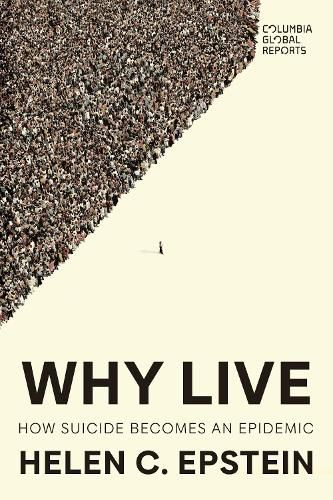Readings Newsletter
Become a Readings Member to make your shopping experience even easier.
Sign in or sign up for free!
You’re not far away from qualifying for FREE standard shipping within Australia
You’ve qualified for FREE standard shipping within Australia
The cart is loading…






What causes suicide epidemics-and how can we prevent them?
Many suicides are caused by biological mental illness, but sometimes the suicide rate of a particular group jumps-two-, three-, or even ten-fold-in a short time, behaving like an epidemic. Suicide epidemics unfold more slowly than microbial plagues like flu or malaria, but they happen far too quickly to result from genetic changes and affect far too many people to be explained away as spontaneous cases of brain injury.
These epidemics have occurred in America's rustbelt towns, Russia's cities, and indigenous communities from the Arctic to the Pacific Islands. They tend not to be associated with wars, poverty, or environmental disasters but with a rupture in the social environment so profound that people come to question their most intimate attachments. The mental pain that drives suicide has been likened to the flipside of love, but if so, how does love suddenly disappear-or seem to-from the lives of thousands of people at once? In Why Live, public health researcher Helen C. Epstein sets out to find the answer.
$9.00 standard shipping within Australia
FREE standard shipping within Australia for orders over $100.00
Express & International shipping calculated at checkout
Stock availability can be subject to change without notice. We recommend calling the shop or contacting our online team to check availability of low stock items. Please see our Shopping Online page for more details.
What causes suicide epidemics-and how can we prevent them?
Many suicides are caused by biological mental illness, but sometimes the suicide rate of a particular group jumps-two-, three-, or even ten-fold-in a short time, behaving like an epidemic. Suicide epidemics unfold more slowly than microbial plagues like flu or malaria, but they happen far too quickly to result from genetic changes and affect far too many people to be explained away as spontaneous cases of brain injury.
These epidemics have occurred in America's rustbelt towns, Russia's cities, and indigenous communities from the Arctic to the Pacific Islands. They tend not to be associated with wars, poverty, or environmental disasters but with a rupture in the social environment so profound that people come to question their most intimate attachments. The mental pain that drives suicide has been likened to the flipside of love, but if so, how does love suddenly disappear-or seem to-from the lives of thousands of people at once? In Why Live, public health researcher Helen C. Epstein sets out to find the answer.